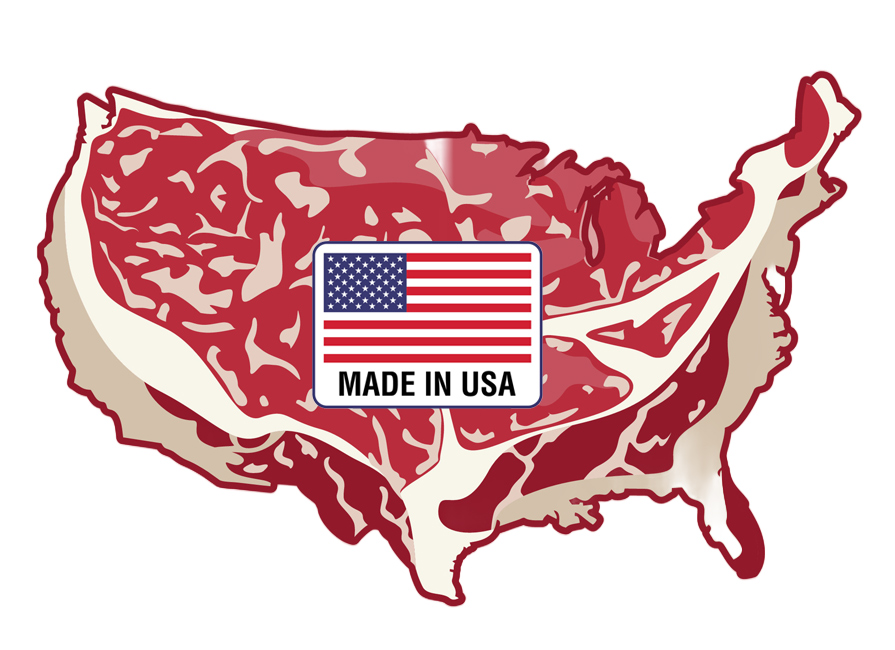In today's increasingly food-conscious world, consumers expect a label to mean what it says—including the…
Where’s the Beef?
 The story that grabbed my attention last week was a class action lawsuit against Taco Bell challenging the actual beef content in the chain’s beef tacos. Taco Bell responded with what appeared to be an example of public relations crisis management at its best, but with one major flaw: in rebutting the lawsuit Taco Bell appears to have trashed its product.
The story that grabbed my attention last week was a class action lawsuit against Taco Bell challenging the actual beef content in the chain’s beef tacos. Taco Bell responded with what appeared to be an example of public relations crisis management at its best, but with one major flaw: in rebutting the lawsuit Taco Bell appears to have trashed its product.
The false advertising lawsuit claims that the “seasoned ground beef” in Taco Bell’s crunchy taco, beefy ground burrito and other products doesn’t actually meet the minimum requirements set by the U.S. Department of Agriculture to be labeled as “beef.” Taco Bell responded quickly with its “thank you for suing us” ads stating that the filling was indeed beef with added seasonings.
Taco Bell’s response strategy seems to have been somewhat hastily designed. Having served my time in the darkened corridors of corporate America I can hazard a guess at the mayhem following the issue of the lawsuit: lawyers and directors running around trying to protect the brand at all costs. So a statement is crafted and issued in defense of the brand. But there seems to have been an oversight; this statement openly reveals a lack of quality and taste in the brand’s raw ingredients.
Taco Bell agrees that its “seasoned ground beef” is not 100% meat and that other ingredients are added. In a clever trick to protect the brand the company states, “The only reason we add anything to our beef is to give the meat flavor and quality. Otherwise we’d end up with nothing more than the bland flavor of ground beef…” OK, I think we had all realized that the ingredients in your average beef burrito weren’t the best. How could they be? There are menu items at Taco Bell for $.99. That’s certainly not the price for prime grassfed steak – and according to the allegations in the court documents that isn’t even a price for basic beef.
It’s breathtaking but true. Taco Bell admits that its meat is bland – defined as lacking taste, lacking flavor and being insipid. We might speculate as to whether this meat is trim or recovered meat but it’s almost beside the point. Taco Bell is a company that sells us food. It markets its products as tasty. Taco Bell has nutrition calculators and the Taco Bell “drive thru diet” website to help plan our intake. But in this one statement the company has admitted that it uses ingredients that lack key requirements that we all know are crucial in preparing healthy, nutritious, and enjoyable food. Pick up any cook book or listen to any TV chef and you know you’ll be told about the importance of the quality and taste of the ingredients.
Every meathead knows that the taste of meat is a direct result of the breed of the beef animal, its age and what it was fed. Taco Bell’s self proclaimed “bland” beef is almost certainly either from an animal raised on a feedlot or a discarded dairy cow. Either way this is not meat raised with a flavor profile, taste or texture in mind. If the animal spent a significant portion of its life on a feedlot the sole aim was weight gain and fat content – not flavor. If the meat came from a dairy cow, she was fed to produce milk not flavorful meat. The byproduct of both of these systems is beef (defined solely as “meat from cattle”) and this feedlot and dairy beef has been shown to be really rather unsavory—just look at the millions of pounds of it recalled annually due to E. Coli and other contamination. I am not, of course, accusing Taco Bell of selling contaminated meat but merely pointing out that “blandness” is almost the least of your problems if you rely on feedlot animals or culled dairy cows for your beef. These systems are inherently flawed: poor animal welfare, poor environmental management and a poor record when it comes to food safety too.
Quality is pretty much going to follow the same path. If your sole aim is fat content then feedlots are the way to go, but if you require taste and texture then you might want to look somewhere different. A recently published book, “Steak,” by Mark Schatzker demonstrated that if you want the best quality product then pasture-raised and traditional genetics win every time. As every Animal Welfare Approved farmer knows, raising ruminants on pasture is what nature intended. Nature certainly did not intend beef animals to be force fed on feedlots to the point they have to be treated for liver lesions while polluting the planet with nitrous oxide and other environmental contaminants.
I understand branding. Part of my job is to ensure that the AWA brand stands out for the right reasons. For us it’s relatively easy. We use substance not spin to promote our brand. We have trained auditors assessing real standards. We are a third-party certification – we have no inducement or cost benefit in approving farms that don’t make the grade. Therefore if we are questioned or challenged we have the very transparency of AWA to support us.
We haven’t had to use our crisis management strategy yet – but it’s pretty simple. Admit any mistake, fix the fault and move on. Certainly nowhere does our plan say: “If B fails throw A under a bus.” In the Taco Bell case, where the decision seems to have been “the brand is under attack – throw the ingredients under the bus,” I hazard a guess that the value to Yum brands (the parent company) is the symbol or brand of Taco Bell and not its supply chain or the quality of the supply chain’s products.
Here’s my takeaway: don’t expect big business to give you an inch. In one simple statement Taco Bell tried to get itself out of trouble by accusing its supply chain of providing less than the best ingredients. I abhor the fact that Taco Bell so quickly blamed its supply chain. I cannot believe that Taco Bell does not set specifications or audit the quality, taste and source of its ingredients.
The moral of the story is, as all chefs know, the food on your plate is only as good as the quality of its ingredients. If you eat beef from cattle raised sustainably and humanely then the farmer, the animal and the planet will all benefit – and you’ll get a good quality, tasty meal.



